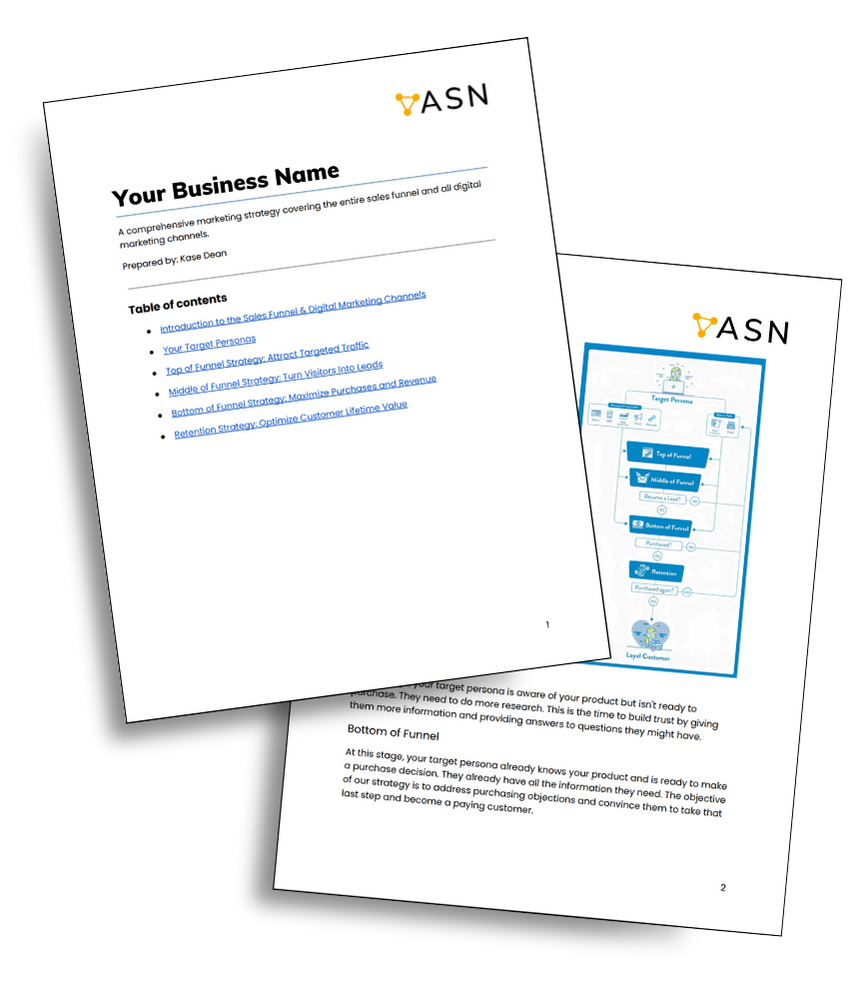How To Create A Useful Ideal Client Profile
Most businesses are marketing to people who don't exist.
I see it every day. Companies spend thousands on campaigns targeting fictional customers they've never actually met.
They refer to it as their "ideal customer profile."
I call it expensive fiction.
The Paint-by-Numbers Problem
When clients do show me their customer profiles, the red flags are immediate.
They're not proud of them. They don't mention them without prompting.
And when they do share them, they're painfully generic.
Gender. Age range. Income bracket. A surface-level problem with zero depth.
It's data without a soul.
These profiles appear to have been assembled from a template because they were.
There's nothing you could use in a compelling marketing campaign - no insight into why someone buys.
Research indicates that 57% of marketers overlook crucial data points necessary for a comprehensive view of their customers.
They're building strategies on incomplete fiction.
The Vanity Project Trap
The worst part? Businesses think they're being strategic.
It's like building a website without ever asking who will use it.
You end up with an echo chamber completely unrelated to the real world.
The company's internal perception gets superimposed on outside reality.
They're convinced they're doing the right things.
However, they've failed to grasp a fundamental truth: to understand why customers buy, you must see the world through their eyes.
Every website redesign screams "vanity project" because it's built for the business owner, not the customer.
The cost is staggering.
Sixty per cent of customers switch to competitors after having a bad experience.
When you market to theoretical people instead of real ones, you create experiences that feel completely disconnected.
The Discovery Gap
The fundamental disconnect stems from a lack of a robust process for learning from clients before they make a purchase.
Most businesses skip the discovery phase entirely. They jump straight to selling.
Real discovery means digging deep into the initially voiced issue to find the emotional centre.
It's almost therapeutic, but not in a "tell me about your childhood" way.
It's about getting past the surface-level information people often recite and tuning into what's happening underneath.
Most businesses focus on what they sell. I'm interested in why it matters.
Finding the Emotional Centre
A client once told me they "help creatives turn their ideas into income."
Sounds solid, right?
But when I asked why that mattered to them, they got quiet.
Then said: "Because I know what it's like to feel invisible.
To have all this talent and no idea how to make it count in the real world."
That's the emotional centre.
That's the difference between generic positioning and something that stops people mid-scroll and makes them feel seen.
The questions that get you there are never on positioning worksheets:
What do your best clients thank you for that they didn't expect?
What frustrates you most about your industry?
When did you know your work mattered to someone?
We're not just trying to be clearer. We're trying to be felt.
The Trust Barrier
Most businesses resist going this deep. They say it's too personal or unprofessional.
The real issue is distrust.
Every person I speak to has been let down, betrayed, and disappointed.
They're jaded. They expect to be treated transactionally.
They just want to know the price so they can decline it.
They've fallen out of love with their business, with their ultimate dream.
I take it as a moral obligation to let them experience the exact opposite.
Regardless of whether they become a client, they must leave in a better state than they arrived.
From Hunting to Partnering
When you break through that jadedness, something profound happens.
They start seeing their clients as the hero and themselves as the guide.
They begin to protect their clients like a trusted, empathetic advisor.
It's not just a shift in marketing; it's a shift in marketing. It completely transforms how they do business.
Away from the survival mentality of transactional business and towards true transformation.
They realise that nailing their ICP is essential because it represents the people they'll be collaborating with, partnering with, and seeking mutually beneficial existence with.
The ICP transforms from a marketing target into a partnership blueprint.
As customer discovery research confirms, this is about "questioning your core business assumptions" and putting evidence behind assumed product-market fit.
The First Step Forward
For business owners recognising themselves in that jaded, transactional state, here's what to do tomorrow:
Stop marketing for a moment. Just listen.
Pick three past or current clients who made you feel energised, respected, and valuable.
Send them this message:
"I'm working on sharpening how I describe what I do, and I realised you are precisely the kind of client I want more of.
Would you mind telling me why you chose me over others?
What surprised you about working with me?
What's changed for you since we worked together?"
Don't overcomplicate it. Don't turn it into a survey.
Just open a human conversation.
You're not looking for copy-and-paste answers.
You're trying to feel something again.
To reconnect with why your work matters and who it helps.
That single step will remind you that this whole thing is about relationships, not reach.
It'll give you language straight from the mouths of people who already trust you.
From there, building your ICP becomes a reflection of authentic experiences, not fictional avatars.
And once you've felt that connection, you won't want to go back to spray-and-pray marketing.
Start with one conversation. One real one.
That's where the shift begins.
Get a 100% Free Marketing Strategy That Will Boost Your Business Growth
ASN respects your inbox privacy. You can unsubscribe at any time with one-click.

Kase Dean
Kase Dean is a Business Growth Consultant and Strategic Marketing Expert with over 14 years of experience helping service-based business owners, consultants, and agencies scale their businesses sustainably.
As the founder of ASN Startup™, he provides structured growth systems that help entrepreneurs move beyond unpredictable revenue, step into leadership, and build scalable, profitable businesses.
Kase specialises in marketing strategy, pricing and revenue models, sales systems, and leadership development, empowering business owners to create predictable growth without burnout.
His expertise has helped countless professionals streamline their marketing, automate client acquisition, and position themselves as industry leaders.
When he’s not working with clients, Kase shares insightful strategies on business growth, marketing automation, and leadership through his writing, workshops, and coaching programs.
Want to work with Kase? Book a Free Business Growth Audit to get expert guidance on scaling your business with clarity and confidence.

© 2013 - 2025 Copyright. Kase Dean Limited. All rights reserved.
Attract Sell Nurture™, ASN Startup™, ASN Elevate™, ASN Authority™, ASN Activate™, Ask Kase™ and ASN™ are trading names of Kase Dean Limited.
Kase Dean Limited is registered in England and Wales, company number 11675593. Registered office: 86-90 Paul Street, London, EC2A 4NE.


